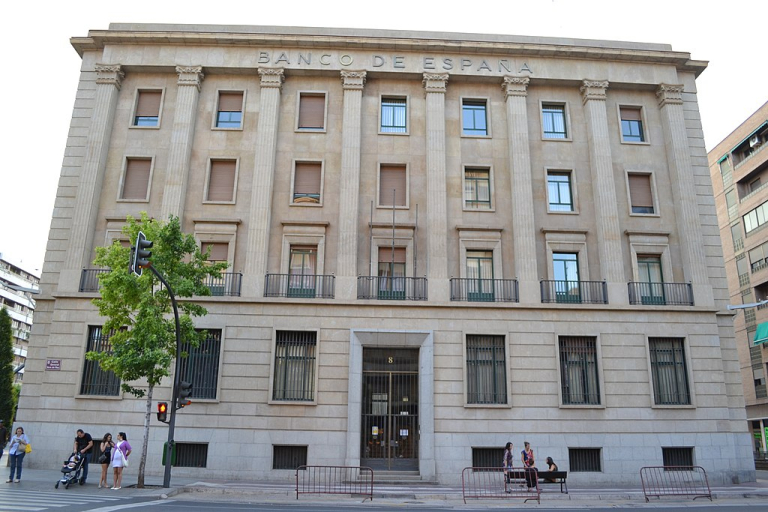Mortgage in Spain

Now that you have decided to buy a home, it may be interesting to finance part of it with a Spanish mortgage. An advantage of this is that you retain your liquidity, you can use the favourable interest conditions and depending on your personal situation it can also yield tax advantages.
When you decide to finance the purchase, it is advisable to have a feasibility study carried out. This way, you will know exactly what your financial possibilities and expected monthly expenses will be. After the banks have studied your file and a number of quotes have been presented, you can calmly choose the mortgage that best suits your situation. We then inform the bank and after accepting the conditions, your application is officially ‘approved subject to valuation’.
Once the bank has been selected, the account is opened and the valuation can be requested. It is customary for the financing banks to request the valuation. You are free to hire a valuer yourself and the banks are obliged to accept any valuation report, as long as the valuation office is recognized by the Banco de España. After the valuation has been successfully completed, the final approval is given and the date for transfer can be set in consultation with all parties involved.
Passing deeds and 10 days legally required 'cooling-off period'
Due to the new mortgage law, you will have to appear twice at the notary. Once to confirm the mortgage conditions again in the presence of the notary (Acta de Transparencia) and after a mandatory period of 10 days ‘cooling-off period’ a second time to sign the actual mortgage and purchase deed. Keep this in mind when determining the date of transfer when signing the purchase contract. Below we briefly describe the general conditions for financing in Spain and the mortgage application process.
Maximum term
The maximum term of a Spanish mortgage for non-residents is 25 years, with a maximum age of 75 years.
Maximum Financing Percentage.
The maximum financing percentage is 70% of the purchase price (or appraisal value, whichever is lower).
Disposable income to mortgage burden (Debt to Income)
According to Spanish banking standards, a maximum of 35% of net income may be used for joint expenses in Spain and Belgium/Netherlands. Simply put, multiply your total long-term expenses by a factor of 3 and this is the monthly income that must be demonstrated.
Mortgage type
In Spain it is common to provide an annuity mortgage. In this case a fixed amount of interest and repayment is paid monthly and the loan is repaid in full during the term. You only pay interest on the outstanding mortgage amount.
Interest rates
You can choose between a variable or fixed mortgage interest rate. The variable interest rate is calculated on the basis of the Euribor + a surcharge interest rate and is re-established annually. The fixed interest rate remains the same for the duration of the loan. The variable interest rate is normally lower than the fixed interest rate. Both options have advantages and depending on your profile we can determine in a personal conversation which one suits you best.
Early repayment (partial or full)
Since 2019, the rates for early repayment have been fixed in the new mortgage law. Variable interest: < 3 years 0.25%, 4-5 years 0.15% and > 5 years 0.00%.
Fixed interest: < 10 years max 2%, then max 1.50%
Processing time
The processing time from the mortgage application to the transfer is on average 7 to 9 weeks.
Buyer's Costs
When purchasing existing construction, you usually pay 7% transfer tax (2023). This may differ per autonomous state, so ask your local real estate agent or lawyer what rate applies in your region. For new construction, 10% VAT is charged. In addition, there are additional costs such as passing the deed, registration in the land registry, the administrative settlement by the gestor and stamp duty. This is on average € 2,000. If you decide to hire a lawyer to provide you with legal assistance, they will charge approximately 1.00% of the purchase price as brokerage. Subsequently, the costs for the real estate agent are often already included in the purchase price and are paid by the seller.
Consequences of Corona
Worldwide everyone feels the consequences of the corona pandemic and this is no different in Spain. Despite the fact that the financing rates have remained the same and the interest rate is still historically low, Spanish banks have become somewhat more cautious and applications are studied for a long time before an agreement is given.
This affects the lead time and additional securities are also regularly requested to receive the approval. Think of an ORL or other additional conditions. Since 2019, it is no longer legally permitted to sell combined products as a condition for financing, but in practice this still happens very often and the client receives a discount on the mortgage interest as a ‘reward’. Pay close attention to this.
We would be happy to put you in touch with our financial specialist. This is 100% independent, a Certified Mortgage Advisor (protected title in Spain), provides all services in Dutch and has direct access to multiple mortgage providers in the Spanish market. From the first contact with the bank to the passing of the deed at the notary, they will assist you. Even after the transaction has been completed, you can always contact them with your questions about your Spanish mortgage.
Tip: Hiring a mortgage advisor can have several advantages:
- Direct access to multiple mortgage providers through one contact person
- Services in your own language
- Independent advice and the best conditions
Do the Free Mortgage Check
Fill in the form below and our Mortgage Advisor will contact you (in Dutch, German, English or Spanish) within two business days. Your details will of course be treated confidentially!